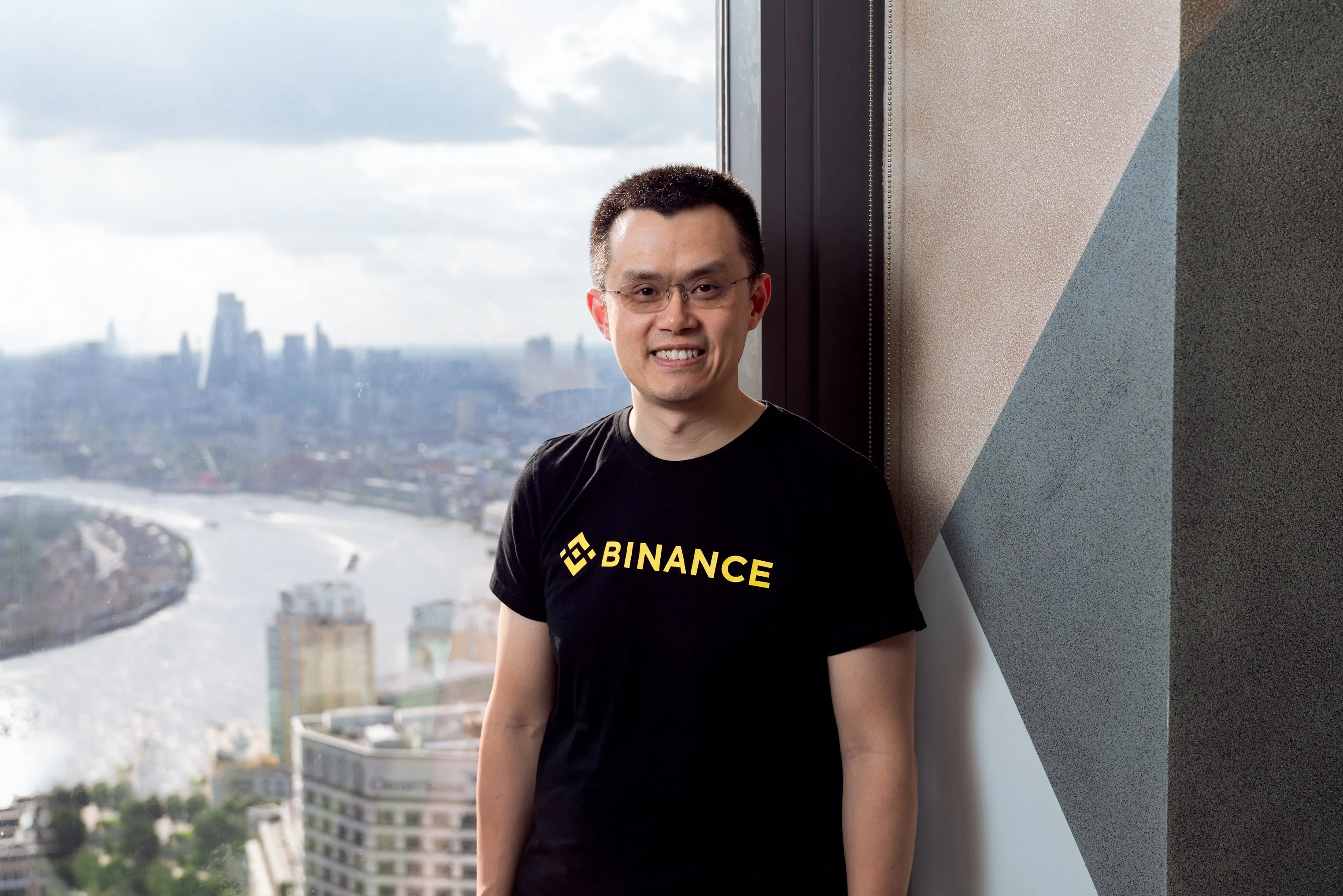In brief
- Forbes has alleged that Binance concocted a scheme to evade US regulators.
- The crypto exchange’s CEO Changpeng "CZ" Zhao has denied the claim.
- Speaking to Decrypt prior to the publication of Forbes' article, CZ described how Binance charts a path through a fluid regulatory landscape.
Last week, Decrypt interviewed Binance’s CEO Changpeng “CZ” Zhao. And then, just as we were about to publish the story, Forbes dropped a bombshell, alleging that the cryptocurrency exchange concocted an elaborate scheme to evade regulators. Viewed in that light, some of CZ’s comments, in which he spoke about Binance’s decentralized organizational structure, and its strategy for dealing with regulators, took on a whole new complexion.
Forbes’ report alleged that Binance created a US company dubbed the “Tai Chi entity” as part of an "elaborate corporate structure designed to intentionally deceive regulators and surreptitiously profit from crypto investors in the United States.” According to leaked Binance documents quoted in the report, the exchange set up a US entity to “distract regulators with feigned interest in compliance,” while customers were encouraged to evade geographic restrictions around the parent site.
CZ spoke to Decrypt before Forbes published its article, and, in the interim, he denied any knowledge of the document concerned. But what he had to tell us nevertheless sheds light on the operations of the rapidly expanding global crypto exchange, and its approach to dealing with regulators.
A decentralized approach
During our conversation, CZ made his feelings on regulations plain, calling them “overly restrictive” in their current incarnation.
“Two years ago, nobody knew what they were supposed to do, or not supposed to do. There was just no regulatory clarity,” he said. “Today I think we are in a situation where most of the first iteration regulations are likely going to be overly restrictive because the most natural thing for regulators to do is to borrow the traditional banking regulations and apply them to crypto.”

But over time, said CZ, regulators will better understand that restricting cryptocurrencies and crypto exchanges is counterproductive because people can now use a P2P platform, or a decentralized exchange (DEX), without a central party being involved.
Binance P2P is reporting double-digit growth, but trading volumes are a drop in the ocean compared with spot trading on the main exchange, so there’s a long way to go.
The company has also experimented with decentralized exchanges, launching Binance DEX in April 2019. Earlier this year CZ told Decrypt how much easier it would be if Binance could operate as a DEX. “You don’t have to KYC, don’t need to have a big compliance team or a big lawyer team,” he said.
Decentralized exchanges, by their very nature, pose a challenge to regulators since there’s no single “central party” they can target. But, according to CZ, Decentralized Finance (DeFi) isn’t going to flip the centralized variety anytime soon.
“If you look longer term, 15 years or 20 years, for sure, DeFi will take over CeFi. But it’s not going to happen anytime soon, like in the next 12 months,” he said.
Where is Binance’s HQ?
While Binance may not technically be described as a decentralized organization (DAO), on the ground it increasingly behaves in a decentralized fashion.
Since the company fled China amidst a crypto crackdown in 2017, CZ has grown used to fielding questions about its corporate structure, such as its non-existent headquarters (the company is officially registered in the Cayman Islands).
“We don't have one monolithic system developed by thousands of people in my office,” said CZ. “When you have a team that's physically distributed, that kind of dictates a little bit of your organizational structure.”
In three years, the exchange has amassed a staff of 1,500, but the way CZ describes it, there’s little central control, with many operations, such as Binance P2P and Binance Futures, functioning semi-autonomously. “It's basically impossible for any one person to understand 100 countries, regulations, markets, cultures,” said CZ.
“Smaller ‘island’ countries, like Singapore, Bermuda, Jersey, and Malta—they’re faster at adopting new regulations and more open to innovation,” he noted. With fewer government offices and agencies to deal with, decisions are made more rapidly, he explained, and smaller jurisdictions are more likely to consider each project on its merits, in contrast to vast countries such as the US and China.
Binance US: A $4 million dollar affair and counting
Binance has no illusions that the US will be a tough market to crack. To date, Binance.US has acquired licenses in 40 states, but it still needs 10 more to proceed. And getting all those licenses is not cheap:
“I believe the number I was told, very ballpark, [was] half a million dollars per state,” said CZ. “I assume this includes legal fees. And so, if you factor in like 48 states, that's $4 million just to get started. And it takes multiple years to get those licenses.”
But such caution is needed. US authorities recently took action against crypto derivatives exchange BitMEX for inadequate anti-money laundering procedures, among other transgressions. Other exchanges (notably, OKEx in China) have also faced enforcement from regulators.
Is there a chance that Forbes’ Tai Chi story could have an impact on Binance’s bid to crack the US market?
“In my opinion, it seems that Binance was trying to be flexible and work with countries that were pro-crypto, thus being fluid, like Tai Chi is,” Gerald Votta, an analyst at Quantum Economics, told Decrypt. “I do not think this affects their standing with US regulators, since they have been complying with KYC/AML and not selling coins or tokens that are deemed possible securities to US customers.”
CZ considers that recent enforcement actions could have two different interpretations. Weeding out transgressors is one. “But it could also mean that all the cryptocurrency exchanges are at high risk,” he said. “We want to be fully compliant and we don't want to step on any potential red lines or issues.”
It’s a line of argument that has raised eyebrows in the wake of the Tai Chi document leak. But views on whether Binance is playing regulatory arbitrage or not differ wildly, and among the crypto community, there are certainly those who are sympathetic to its approach.
A fluid and dynamic situation
Cultural differences play their part too. The way things are done in China—behind the scenes, using VPNs to evade authorities, and requiring fluid strategy—is key to understanding Binance's strategy, whether Tai Chi is true or not.
Russia is a case in point. There are rumors of a possible Bitcoin ban or tax on crypto ownership. But CZ said that users can still access the Binance site—despite reports in September 2020 about authorities blacklisting the domain (the site reportedly remained accessible without recourse to a VPN).
“It's a dynamic situation,” he said. “And this is, to be honest, pretty much the same situation all around the world.”
Not every location has worked out for Binance. In Japan, for instance—despite partnering with Yahoo, which has a similar status there to Google in the US—Binance concluded that the country’s regulatory frameworks, while clear, were too restrictive.
But CZ maintains that regulatory clarity is a good thing. In Germany, for instance, the company has teamed up with a licensed partner to comply with regulations, introduced earlier this year.
“This is a great situation where there's this higher clarity and we know what we can or cannot do. [But] there are always some restrictions when we're talking about regulations,” said CZ.
And if there’s one thing that Binance has become adept at, it’s tracing a path through the regulatory minefield.

